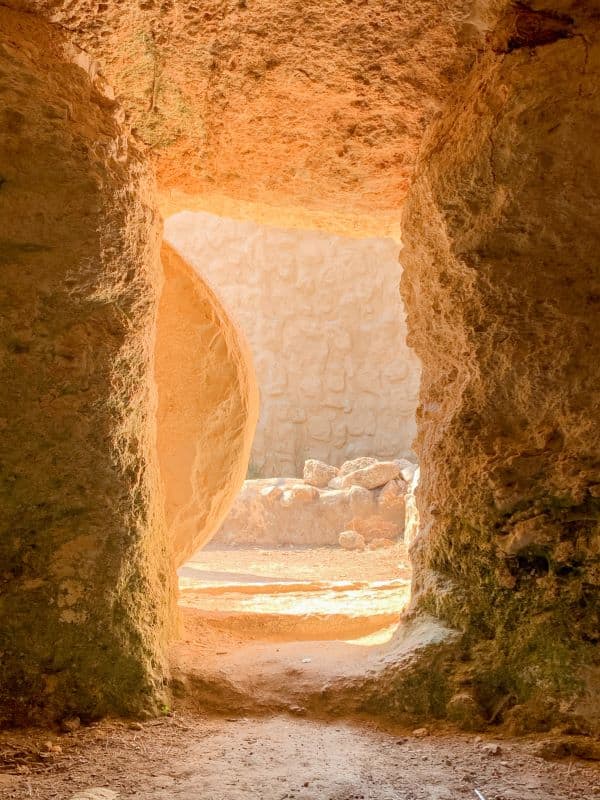To “cut right to the chase”, we will reiterate what was stated previously i.e., in John 14:6, where it is recorded that Jesus said, “I am the way, the truth and the life. No one comes to the Father except through me.” He stated in no uncertain terms that He is in fact Truth personified. As mentioned in part 1 of this blog series titled, What is Truth?, that would be a very audacious thing for a mere mortal man to say, if He was in fact just a mere man.
So that begs the question that has been asked for centuries over the past two thousand plus years; who exactly was this Jesus? And how could He make such a bold declaration about Himself no less?
Was He really God in the flesh? Some have said He never claimed to be. Others dismiss it altogether. The answer to that question is key to arriving at the correct conclusion to the issue of what truth is.
How Many Creator Gods Are There?
There is estimated to be about four thousand religions worldwide.
The world’s primary religions fall into two categories: Abrahamic, such as Judaism, Christianity, and Islam; and Indian, which includes Hinduism, Buddhism, Sikhism, and others.
Of the world’s major religions, Christianity is the largest, with more than two billion followers. (Actually, true Christianity is NOT a “religion”, but a relationship.) It is classified as a religion along with the others by academics and scholars. More can and will be said about that at another time.
The second most widely practiced religion is Islam, with approximately 1.8 billion followers worldwide. The third most widely practiced is Hinduism, with approximately 1.1 billion followers, one of the oldest.

We will briefly get into some particulars of Judaism, Christianity, and Islam in part 4 of this series because they represent the three main populous monotheist (one God) belief systems in the world.
Why is that important? Because if we really do have a multiplicity of “gods”, then how can we really know who, what, why, etc.? From a practical, logical, and even scientific standpoint, we assert as stated in part 2 of this blog series, which most credible scientist today agree on, the universe had a beginning. If it had a beginning, it had to have a beginner, so to speak. If it was created, that presupposes a creator. The evidence of design denotes a designer, etc. Either eternal God or eternal matter and energy.
Related: In the Beginning God – A Logical Argument for God’s Existence
With all the complexity, design, and intelligence that we now know exist (not the least of which is DNA), which is more plausible? Therefore, we define the only true God as the creator of the physical heavens and the earth, everything therein.
Will The Real Creator God Please Stand Up?
The question then becomes, how do we determine who the true creator God of the universe is? That is probably the chief question of all time for all people groups.
What criteria should be used to make that determination? What would be the single best argument, the “coup de grace” so to speak, that should prove well beyond any reasonable doubt which world belief system is the truth?
As stated in a few of our video teachings, no amount of evidence can convince some people if their minds are already made up to believe otherwise. We will make a concise case here with the limited amount of space available. There is a lot more that can be presented, we encourage you to sincerely research and delve into this matter further on your own.
It is our position that to the answer the question of what is the truth, we must ask the question, as stated above, who exactly was Jesus of Nazareth?
Whether or not a person believes He was and is the God man as the Holy Bible plainly teaches, it is very clear that no other person in history has had the impact on humankind as He has.
The evidence shows, human history for the most part, is dated based on His earthly life and death. He is much more referenced, compared to and discussed in matters of “religion”, morality, spirituality, and values than all other persons in history combined. It would seem no unbiased, knowledgeable, and rationale thinking person would disagree with that.
However strong an argument that is, we contend the most conclusive evidence for the why He stands completely alone, well above all other persons when looked upon in the realm of deity, is His resurrection from the dead.
We need to define the word resurrection here because often the word resurrection and being raised from the dead are seen as synonyms terms which they are not.
When someone is raised from dead, and there were several people mentioned specifically by name in the bible (not including the ones raised in mass after Jesus’ resurrection) they died again. Resurrection is to be raised, never to die again, ever.
Jesus is the only person in history to have accomplished this feat, as proved by the eyewitness appearances of Him afterwards. (More will be presented about that at another time.)

Other Resurrected gods?
There have been several arguments regarding other “gods” down through history to refute the originality and authenticity of Jesus’ resurrection. When studied out, they can easily be recognized as clear myths that have no real, sound, credible or historic scholarly foundation.
Stories of “gods” dying and returning to life are most often cited from the religions of the ancient Near East and Greco-Roman mythology. Space does not allow for addressing all of them even briefly here.
There is a very long list of “gods” that died and allegedly were resurrected. We will only mention briefly what appears to be one the most well-known, popular, and often cited myth, that is used in an attempted comparison to the resurrection of Jesus Christ.
Osiris, (or Usir) was one of the most important gods of ancient Egypt and one of the oldest legends of a “god” that died and was resurrected. The origin is obscure, but he was a local god in Lower Egypt. By about 2400 BC he was considered both a god of fertility and the embodiment of the dead and resurrected king.
This was combined with the Egyptian concept of divine kingship. The king at death became Osiris, god of the underworld, and the dead king’s son, Horus, was identified with a god of the sky who avenged his father’s death. The goddess Isis was the mother of the king.
According to the form of the myth reported by the Greek author Plutarch, Osiris was slain by the god Seth, who tore the corpse into 14 pieces and flung them over Egypt. Isis and her sister found and buried most of his body parts.
From about 2000 BC onward it was believed that every man, not just deceased kings, became associated with Osiris at death. Not all legends believe this identification with Osiris implied resurrection. (Source: Britannica)
What is the point here and why present this?
Because as we will expand on later in part 4, our premise is:
- The true creator God must be involved in anyone being resurrected from the dead.
- Much evidence supports Jesus of Nazareth as the only person in history to have been resurrected.
- Therefore, the true creator God is indeed the Christian God.
Of course, I know and realize from observing the world scene, and from scripture, that many people will view that as a very controversial statement and in fact will likely outright reject it. That is the prerogative of free will that the creator God has given to every human being. However, it seems that if a person will honestly and objectively look into this subject matter, I think the most plausible conclusion would be the legitimacy of Jesus’ resurrection. That would clearly separate Him from all the others.
Jesus Is the Truth: One Final Point
A crucial point of note and to consider as well is this:
All other so-called risen “gods” and “saviors” in history are purported to have occurred centuries before Jesus. That is one of the main arguments of those who do not accept the legitimacy of Jesus. They allege Christianity copied (borrowed) the resurrection and other accounts of Jesus’ life from one or a combination of these prior stories.
However, it seems that argument works against them because from an historical perspective, the closer a recording of an event is to the event itself, the more credibility it is usually given by credentialed, earnest, and unbiased scholars of ancient history.
We have many more tools available to us now, and in the past six hundred years, since archaeology began in earnest, that were not available in the proceeding centuries before Jesus walked the earth.
The field of archaeology is a huge evidentiary area, along with geology and the study of historicity itself, as well as others.
There have been numerous archaeological and other findings done to conclusively proof the authenticity of the Bible. In fact, there has never been any archaeological finding that have disproved the Bible, when all the facts are examined. But as I have previously submitted, no amount of evidence will convince someone if their mind and heart is not open, and they refuse to believe.
In the next and final part of this important topic, Judaism vs Christianity vs Islam, we will present what we believe is compelling factual evidence for the veracity of Jesus of Nazareth.

